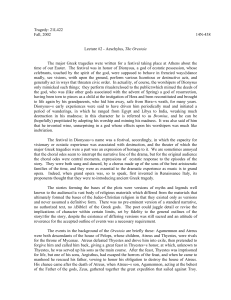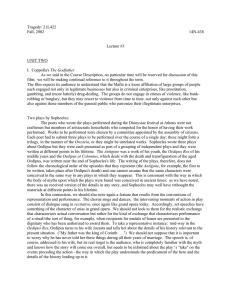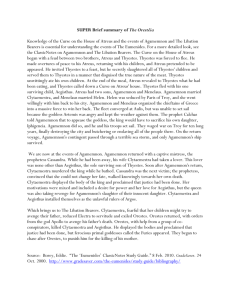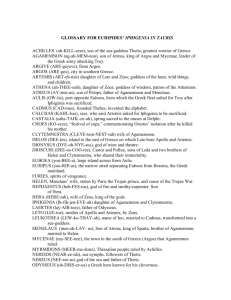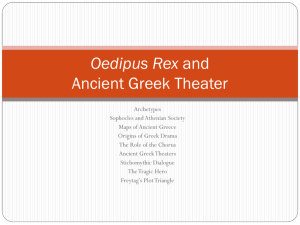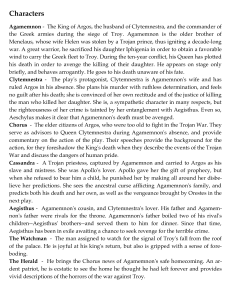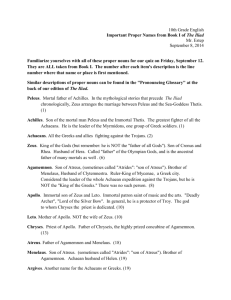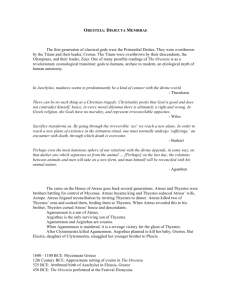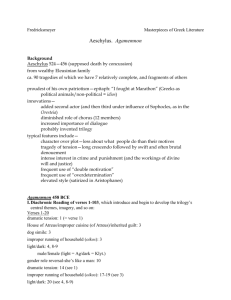House of Atreus-
advertisement
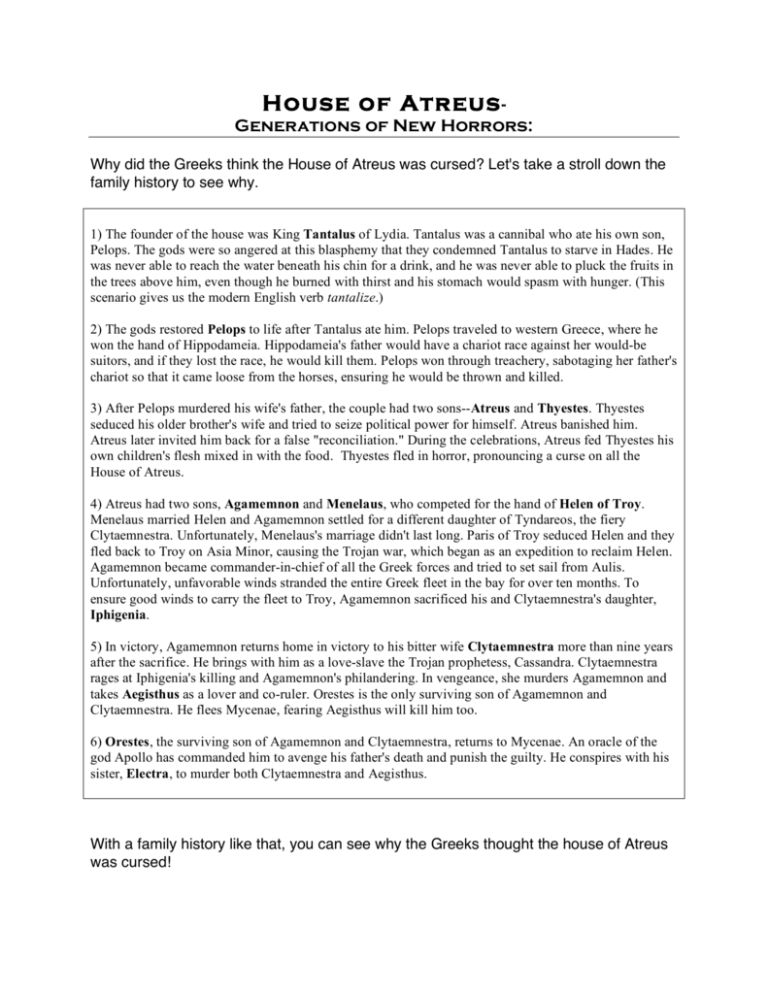
House of Atreus Generations of New Horrors: Why did the Greeks think the House of Atreus was cursed? Let's take a stroll down the family history to see why. 1) The founder of the house was King Tantalus of Lydia. Tantalus was a cannibal who ate his own son, Pelops. The gods were so angered at this blasphemy that they condemned Tantalus to starve in Hades. He was never able to reach the water beneath his chin for a drink, and he was never able to pluck the fruits in the trees above him, even though he burned with thirst and his stomach would spasm with hunger. (This scenario gives us the modern English verb tantalize.) 2) The gods restored Pelops to life after Tantalus ate him. Pelops traveled to western Greece, where he won the hand of Hippodameia. Hippodameia's father would have a chariot race against her would-be suitors, and if they lost the race, he would kill them. Pelops won through treachery, sabotaging her father's chariot so that it came loose from the horses, ensuring he would be thrown and killed. 3) After Pelops murdered his wife's father, the couple had two sons--Atreus and Thyestes. Thyestes seduced his older brother's wife and tried to seize political power for himself. Atreus banished him. Atreus later invited him back for a false "reconciliation." During the celebrations, Atreus fed Thyestes his own children's flesh mixed in with the food. Thyestes fled in horror, pronouncing a curse on all the House of Atreus. 4) Atreus had two sons, Agamemnon and Menelaus, who competed for the hand of Helen of Troy. Menelaus married Helen and Agamemnon settled for a different daughter of Tyndareos, the fiery Clytaemnestra. Unfortunately, Menelaus's marriage didn't last long. Paris of Troy seduced Helen and they fled back to Troy on Asia Minor, causing the Trojan war, which began as an expedition to reclaim Helen. Agamemnon became commander-in-chief of all the Greek forces and tried to set sail from Aulis. Unfortunately, unfavorable winds stranded the entire Greek fleet in the bay for over ten months. To ensure good winds to carry the fleet to Troy, Agamemnon sacrificed his and Clytaemnestra's daughter, Iphigenia. 5) In victory, Agamemnon returns home in victory to his bitter wife Clytaemnestra more than nine years after the sacrifice. He brings with him as a love-slave the Trojan prophetess, Cassandra. Clytaemnestra rages at Iphigenia's killing and Agamemnon's philandering. In vengeance, she murders Agamemnon and takes Aegisthus as a lover and co-ruler. Orestes is the only surviving son of Agamemnon and Clytaemnestra. He flees Mycenae, fearing Aegisthus will kill him too. 6) Orestes, the surviving son of Agamemnon and Clytaemnestra, returns to Mycenae. An oracle of the god Apollo has commanded him to avenge his father's death and punish the guilty. He conspires with his sister, Electra, to murder both Clytaemnestra and Aegisthus. With a family history like that, you can see why the Greeks thought the house of Atreus was cursed!
